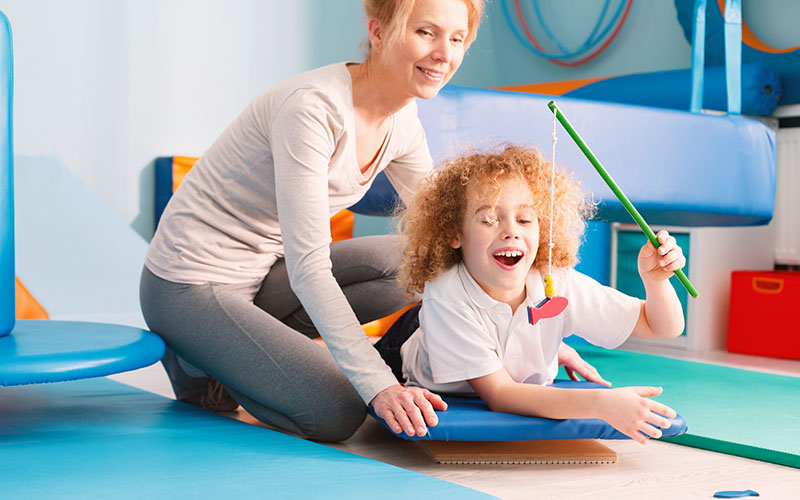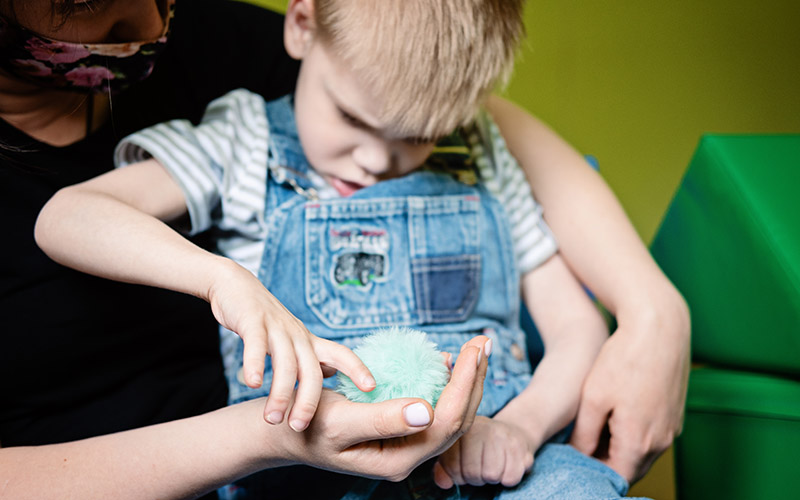Parenting a child on the autism spectrum comes with unique challenges, but it’s essential to remember that every child, regardless of their abilities, deserves the opportunity to thrive. With the right support and understanding, parents can create an environment that fosters growth and development for their autistic children. In this article, we’ll explore practical tips for improving the well-being and enhancing the skills of autistic children.
- Understand and Embrace Individuality: Recognize that each autistic child is unique, with their own strengths, challenges, and preferences. Take the time to understand their individual needs and celebrate their accomplishments, no matter how small. Embracing their individuality helps build a positive foundation for growth.
- Establish Routine and Consistency: Autistic children often thrive on routine and predictability. Establishing a consistent daily routine can provide a sense of security and help them navigate daily activities more comfortably. Clearly communicate any changes in advance and use visual schedules to provide a visual representation of daily activities.
- Effective Communication Strategies: Tailor communication methods to suit the child’s preferences. Some autistic children may benefit from visual aids, social stories, or alternative communication devices. Pay attention to nonverbal cues, as some children may express themselves through gestures or facial expressions rather than words.
- Encourage Special Interests: Many autistic children have intense interests in specific topics. Encourage and incorporate these interests into daily activities and learning experiences. This not only helps the child engage more actively but also allows them to develop expertise in areas of personal passion.
- Social Skills Development: While social interactions can be challenging for autistic children, it’s crucial to provide opportunities for socialization. Arrange playdates, involve them in group activities, and use role-playing to practice social skills. Supportive environments can help build confidence and improve social interactions over time.
- Sensory-Friendly Spaces: Create sensory-friendly environments at home and in other settings. Pay attention to lighting, noise levels, and textures to make spaces more comfortable for the child. Providing sensory breaks and tools like fidget toys can help manage sensory sensitivities.
- Promote Independence: Foster independence by breaking tasks into smaller, manageable steps. Encourage the child to take on age-appropriate responsibilities and provide positive reinforcement for completing tasks independently. Building independence boosts confidence and self-esteem.
- Collaborate with Professionals: Work closely with teachers, therapists, and other professionals who specialize in autism spectrum disorders. Collaborate on strategies for both home and school to ensure consistent support. Regular communication ensures that everyone involved is on the same page regarding the child’s needs and progress.
- Celebrate Progress: Acknowledge and celebrate the achievements and milestones of your autistic child. Whether it’s mastering a new skill, successfully navigating a social situation, or showing resilience in the face of challenges, celebrating progress reinforces positive behaviors and motivates continued growth.
- Self-Care for Caregivers: Taking care of an autistic child can be demanding, so it’s essential for caregivers to prioritize self-care. Ensure you have the support you need, seek respite when necessary, and prioritize your mental and emotional well-being. A well-supported caregiver can provide better support for the child.
Conclusion:
Supporting the growth and development of autistic children requires patience, understanding, and a commitment to creating an inclusive and supportive environment. By implementing these practical tips, caregivers can empower their autistic children to thrive, build on their strengths, and navigate the world with confidence. Every small step toward improvement is a significant achievement that contributes to the child’s overall well-being and future success.




